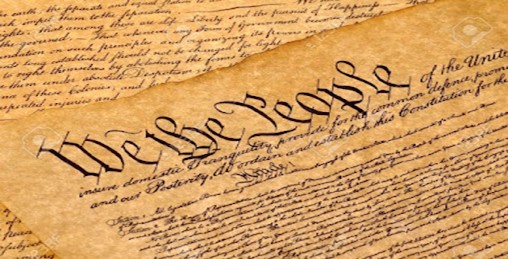| (Copyright) by Eddie Hyatt (Tulsa, Oklahoma) |
|---|
 In 18th century Colonial America, a great spiritual awakening ignited an anti-slavery movement that impacted millions, including America’s Founding Fathers. This resulted in America’s founding documents being formulated as statements against slavery. This anti-slavery characteristic of the Declaration of Independence and the U.S. Constitution was understood by America’s founding generation. This has also been understood by abolitionists and Civil Rights icons such as Frederick Douglas, Abraham Lincoln, and Dr. Martin Luther King, Jr. Dr. King, for example, in his “I Have a Dream Speech,” exhorted America, not to dispense with her founding documents, but instead, to live up to them. Speaking from the steps of the Lincoln Memorial, he declared, When the architects of our Republic wrote the magnificent words of the Constitution and the Declaration of Independence, they were signing a promissory note to which every American was to fall heir. This note was a promise that all men, yes, black men as well as white men, would be guaranteed the “unalienable Rights” of “Life, Liberty and the pursuit of Happiness.” Then quoting from the Declaration of Independence, he proclaimed, I have a dream that one day this nation will rise up and live out the true meaning of its creed: “We hold these truths to be self-evident, that all men are created equal.” Dr. King had obviously studied the U.S. Constitution and understood that there are no classifications based on race, ethnicity, or skin color. The words “slaves” and “slavery” are not mentioned. Instead, it speaks of “citizens,” “persons,” and “other persons.” The language was purposeful for James Madison said, “The Convention thought it wrong to admit in the Constitution the idea that there could be property in men.” The famous abolitionist, Frederick Douglas, understood this and in a July 5, 1852, speech he praised the Constitution as “a glorious liberty document” and extolled the Founding Fathers for their courage and their wisdom. On another occasion, he said of the founding documents, Anyone of these provisions in the hands of abolition statesmen, and backed by a right moral sentiment, would put an end to slavery in America (Hyatt, Abolitionist Founding Fathers, 54-55). Indeed, in 1776 and 1787 when slavery was accepted and practiced in Africa, Asia, the Middle East and throughout much of the world, the words of the Declaration and Constitution were revolutionary, especially those words of the Declaration that declare, “That all men are created equal and that they are endowed by their Creator with certain unalienable rights such as Life, Liberty, and the pursuit of Happiness.” Indeed, when Dr. King was accused of being an extremist, he replied, “Was not Thomas Jefferson an extremist?” He then quoted the words of Jefferson in the Declaration, “We hold these truths to be self-evident, that all men are created equal” (Hyatt, Abolitionist Founding Fathers, 45). Abolitionists of the founding era used the founding documents to attack slavery. For example, a 1784 gathering of Methodist leaders in Baltimore issued a statement in which they denounced slavery as “contrary to the golden rule of God . . . as well as every principle of the Revolution” (Hyatt, 1726: The Year that Defined America, 97). The revival preacher, Samuel Hopkins (1721–1803), used the words of the Declaration in a pamphlet he wrote against slavery. Confronting those who argued that slavery was God’s way of bringing Africans from their pagan land to hear the Gospel, he exclaimed, What sort of “gospel” message is being conveyed when people are enslaved because of the color of their skin? The Declaration of Independence says all men are created equal with certain unalienable rights. Oh, the shocking, the intolerable inconsistencies! (Hyatt, 1726: The Year thatDefined America, 90). Abraham Lincoln also understood the anti-slavery character of the nation’s founding documents. In 1858, Lincoln, who had become the new Republican party’s first candidate for president, declared that the anti-slavery platform of the new party was built on the anti-slavery vision of the nation’s Founders. He said, In the way our Fathers originally left the slavery question, the institution was in the course of ultimate extinction, and the public mind rested in the belief that it was in the course of ultimate extinction. All I have asked or desired is that it should be placed back again upon the bases that the Fathers of our government originally placed it upon (Hyatt, Abolitionist Founding Fathers, 59-60). The cries of those on the Left that America’s founding documents are racist are not based on the facts of history. The historian, David Azerrad, was correct when he said, “The argument that the Constitution is racist suffers from one fatal flaw; the concept of race does not exist in the Constitution” (Hyatt, 1726: The Year that Defined America, 127). ——————————————————————————– Reprinted with permission from: God’s Word to Women http://www.godswordtowomen.org/ ——————————————————————————– |
Views: 0
